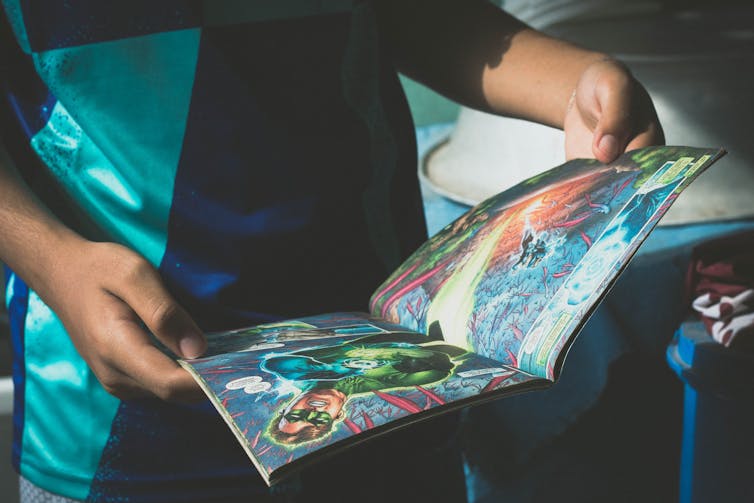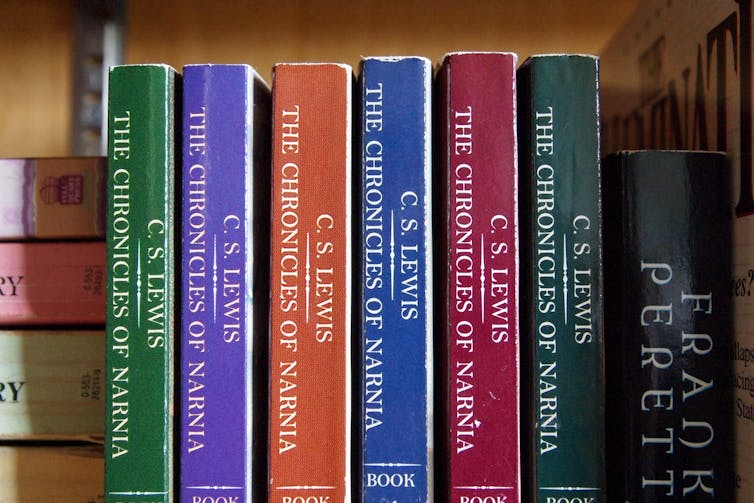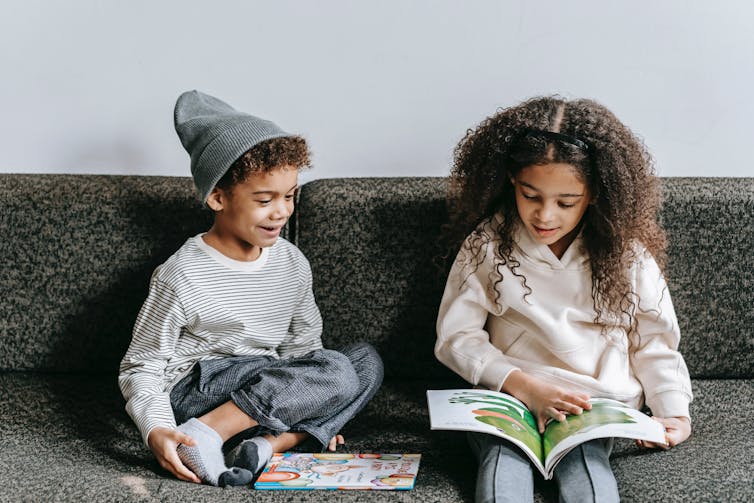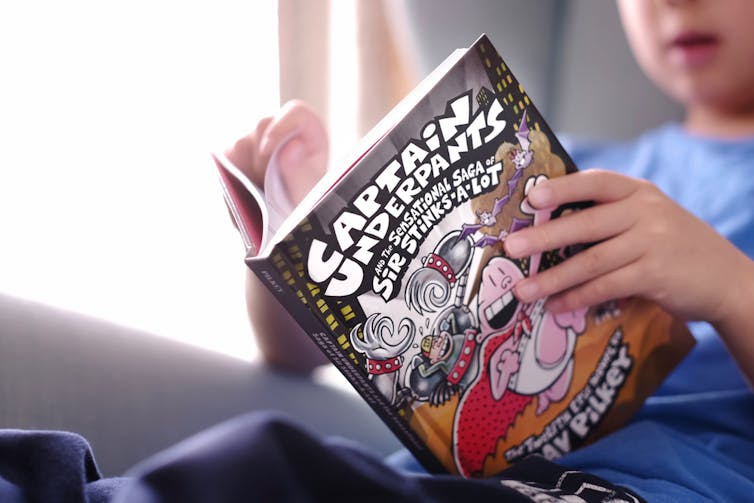Assist! My child will not learn chapter books. What do I do?
Many youngsters begin faculty enthusiastic about studying to learn. And fogeys too! After a few years of studying and re-reading (seemingly advert nauseam) favorite image books aloud, it’s thrilling to see your little one develop their very own studying abilities.
However what in the event that they appear to be “caught” on books that also use a number of illustrations, corresponding to graphic novels, comics or image books?
Many mother and father fret about their little one nonetheless not having fallen in love with chapter books. You would possibly mourn the actual fact they nonetheless aren’t studying the books you liked as a baby – the Roald Dahl classics, the Narnia books or more moderen releases such because the Harry Potter sequence.
However the reality is, it’s counterproductive to push your little one to learn an entire chapter e-book independently if they don’t seem to be prepared. You would possibly flip them off studying altogether. Right here’s what to do as an alternative.
Learn extra: Book Week: it’s not the costume that matters, but falling in love with reading

Sure, chapter books are essential. However don’t rush
Chapter books are an important step in studying to learn. They introduce more and more complicated storylines, themes, characters and settings.
They increase youngsters’s vocabulary (which is essential for creating studying comprehension).
Importantly, when texts don’t have any photos, youngsters should depend on decoding (recognising sound-letter relationships) to make sense of the phrases.
This helps with creating studying fluency (studying precisely with expression at a tempo that permits for comprehension), and creating studying stamina (sustaining comprehension over longer passages of textual content).
However the transition to chapter books might be daunting for youngsters. It’s a giant leap from image books, the place a lot which means is carried within the illustrations, to books the place readers rely solely on the print to make sense of the textual content.
Your little one is probably not able to learn total chapter books independently. They might nonetheless not have developed what researchers name “automaticity” of their decoding abilities (studying phrases with out having to sound them out).
Automaticity frees up mental space for taking note of which means. In different phrases, if you must cease and sound phrases out on a regular basis, it’s exhausting to observe the plot and might take the enjoyable out of studying.
Listed below are some methods you’ll be able to assist your little one develop the abilities they should learn and revel in chapter books.

Select books that assist the transition
Many books are designed to assist younger readers, with quick chapters that includes loads of photographs.
There are image books for older youngsters, and don’t be terrified of graphic novels. In addition to visible richness, they typically provide subtle storylines and themes.
Go to your native library and ask the youngsters’s librarian for strategies.
Share the studying, make it enjoyable and hold the dialog going
Share the reading; you learn a web page or a paragraph, they usually learn a web page or a paragraph, and even only a sentence or two.
This makes studying much less overwhelming for teenagers, however nonetheless permits them to practise.
Plan studying time so it doesn’t compete with distractions corresponding to display time or siblings.
Your little one could even like to assist learn a narrative to a youthful sibling or to grandparents by way of Zoom.
Learn alongside your little one so you’ll be able to share concepts in regards to the story, creator or sequence.
Speak along with your little one about motion pictures, video video games, photographs, artwork and comics. All of this discuss helps construct vocabulary and information, which assist them sort out tougher texts.

Respect their pursuits and hold it constructive
Let your little one discover the books they’re excited by.
Some youngsters will not be eager on fiction, and like to examine science or the world round them. These sorts of texts also help develop vocabulary and sophisticated language.
Bear in mind, studying for pleasure is associated with overall reading attainment and writing means. It’s a giant a part of changing into a lifetime reader.
Sure, you’ll be able to nonetheless counsel books to your little one. However don’t get upset if they are saying no, and undoubtedly don’t insult their tastes by placing down their favorite books and authors.
No matter their response, hold the dialog channels open and assist them really feel assured about their very own selections.

Examine your individual anxiousness ranges and settle for it takes time
Kids can decide up on parental anxiety about tutorial achievement.
Anxiousness takes up mental space and interferes along with your little one’s work as they practise tougher studying.
Kids could seem to grasp their sounds and letters rapidly, however nonetheless want years of education to develop the information and language they want for expert studying comprehension. Additionally they want time to get used to the pages of full print and the smaller font measurement in chapter books.
Settle for that studying to learn is a marathon, not a dash. It’s large work for a youngster.
What if I’m nonetheless anxious?
If you’re actually anxious about your little one’s studying, discuss to their trainer and take into account if a sight or listening to take a look at is warranted (to verify they’ll see the letters and discriminate language sounds).
In case your little one does have decoding difficulties, a systematic approach to studying about sound-letter relationships, and apply in studying precisely and fluently is essential.
Ultimately, although, your most essential function is to present time and encouragement, to keep up an curiosity and delight in studying collectively and independently.
Learn extra: 5 ways to support children’s early literacy skills and build family connections this summer
Source link
